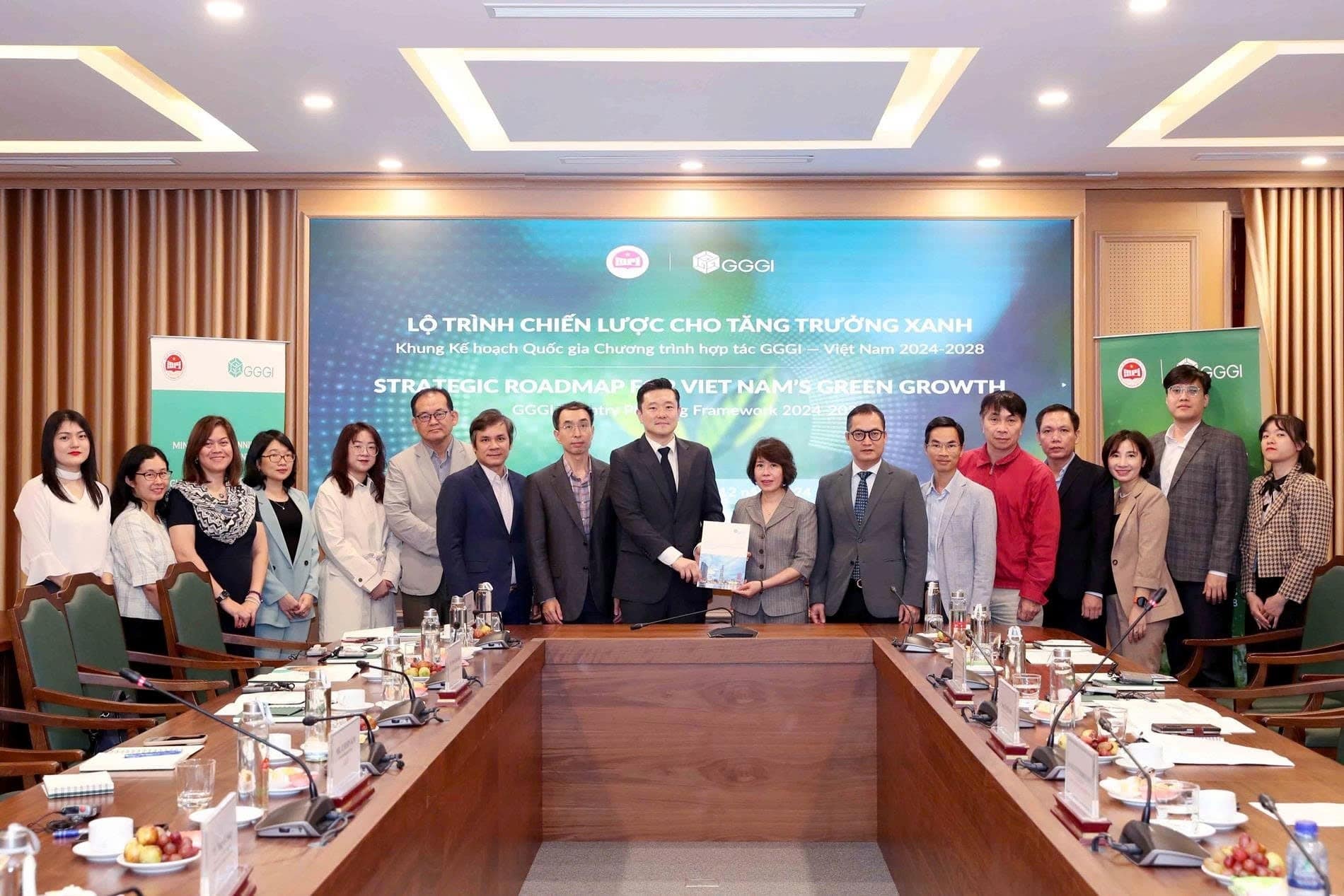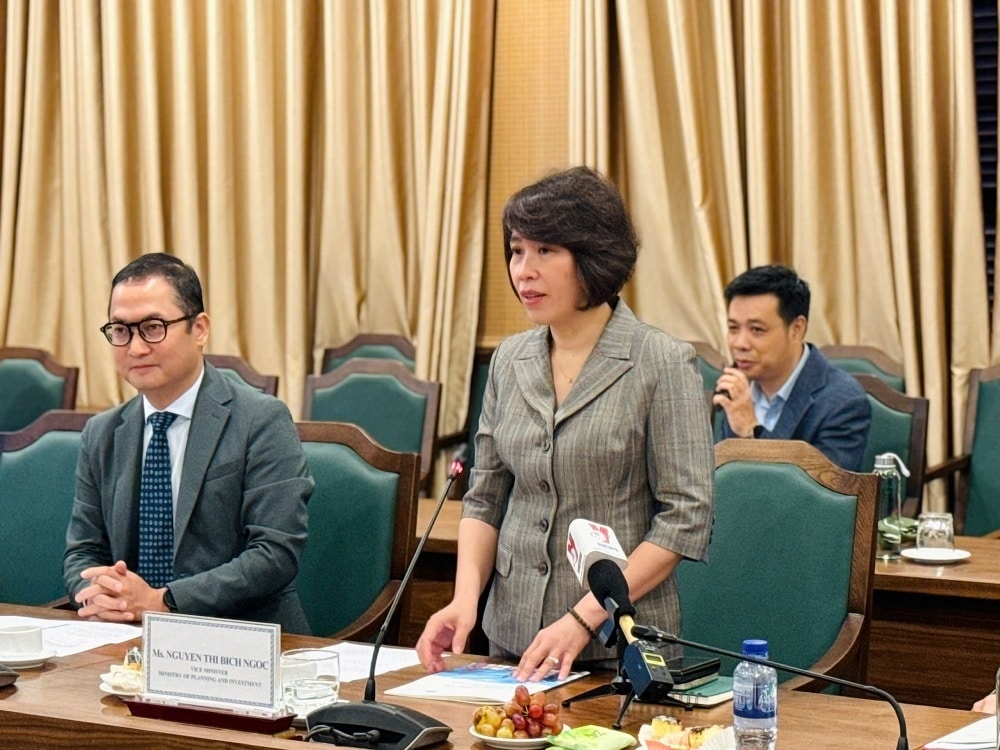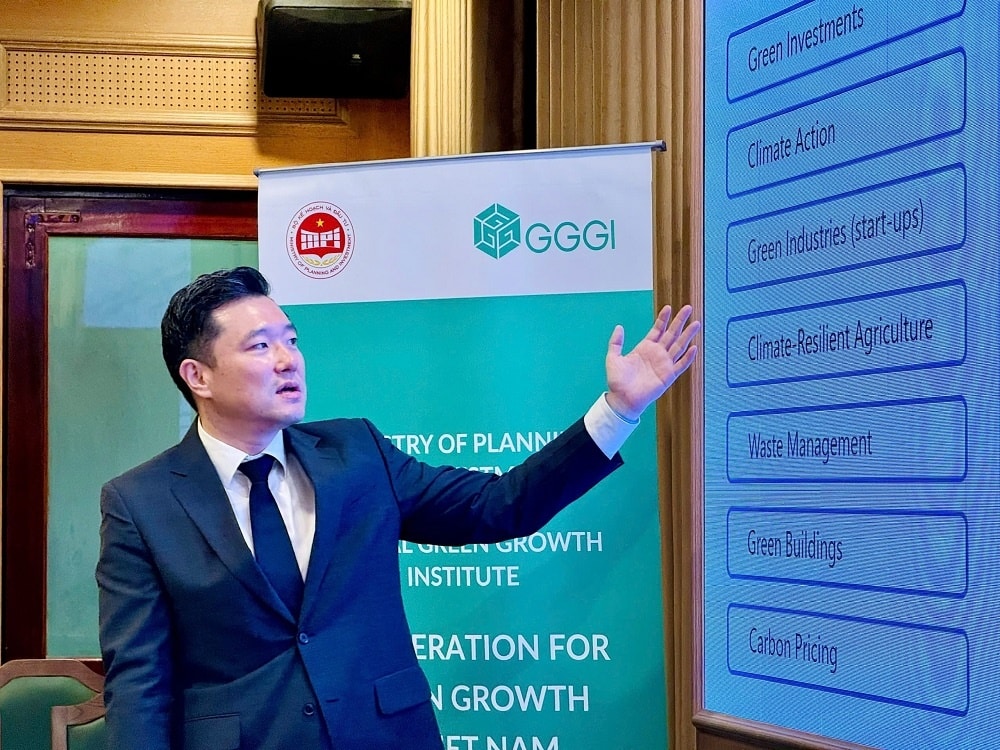
The Ministry of Planning and Investment (MPI) and the Global Green Growth Institute (GGGI) launched the Vietnam-GGGI Country Planning Framework (CPF) 2024-2028 on December 6.
The strategic framework is set to fortify Vietnam-GGGI collaboration over the next five years, driving support for Vietnam’s green growth ambitions and climate actions, including achieving the net-zero 2050 target.
In her opening remarks at the launch at the headquarters of the MPI, Deputy Minister Nguyen Thi Bich Ngoc emphasised, “The launch of the Vietnam-GGGI new framework marks another milestone in the long-term cooperation between the MPI and GGGI to continue promoting green growth and sustainable development in Vietnam.”
Vietnam has solidified its status as a bright investment destination in Southeast Asia. In 2023, foreign direct investment (FDI) registrations in the country reached nearly $36.61 billion, a 32.1 per cent increase from the previous year.
Vietnam has emerged as one of the rising manufacturing powerhouses, and a key destination for multinational corporations seeking diversification, establishing significant operations. Manufacturing now contributes nearly 24 per cent to Vietnam’s GDP, underpinning the country’s economic growth.

Amid the impressive economic momentum, Vietnam is accelerating its decarbonisation efforts. Prime Minister Pham Minh Chinh has pledged to achieve net-zero emissions by 2050, demonstrating the nation’s commitment to climate action and international collaboration. This new CPF 2024-2028 will contribute to this effort.
The plan focuses on seven strategic areas: green investments, climate action, green industries (with a strong focus on climate tech startups), climate-resilient agriculture, waste management, green buildings, and carbon pricing.
Aligned with national policies such as the Socio-Economic Development Plan 2021-2025, the updated Nationally Determined Contribution 2022, and the National Power Development Plan 8, the CPF aims to mobilise investments and support the implementation of transformative policies to advance Vietnam’s green growth agenda.

GGGI country representative to Vietnam, Juhern Kim, emphasised, “As a trusted advisor, the GGGI is privileged to support Vietnam by accelerating green investment mobilisation, providing enhanced technical policy advisory, and supporting the green innovation ecosystem to empower climate tech startups and small- and medium-sized enterprises operating in Vietnam.”
Since becoming a founding member of the GGGI in 2012, Vietnam has worked closely with the MPI as a main counterpart, while collaborating with the Ministry of Finance, Ministry of Natural Resources and Environment, Ministry of Agriculture and Rural Development, and Ministry of Construction, as well as provincial governments.
This long-standing partnership has delivered impactful policy advisories, including the development of the MPI’s Investment Guidelines for Green Growth, the Urban Green Growth Indicator, and the Vietnam Urban Green Growth Development Plan. In terms of investment mobilisation, the GGGI has facilitated the mobilisation of approximately $410 million in green investments for projects such as waste-to-energy and pioneering green bond issuances by financial and corporate entities.
However, the transition to a low-carbon economy requires significant financial resources, technical assistance, and a robust innovation ecosystem. According to the World Bank, Vietnam will need additional investments equivalent to 6.8 per cent of GDP annually – about $368 billion by 2040 – to achieve its climate and development goals.
The CPF 2024-2028 is designed to help address this financing gap by fostering an enabling environment for green investments, preparing bankable projects in key sectors, and providing policy advisories.
Thanh Tung





